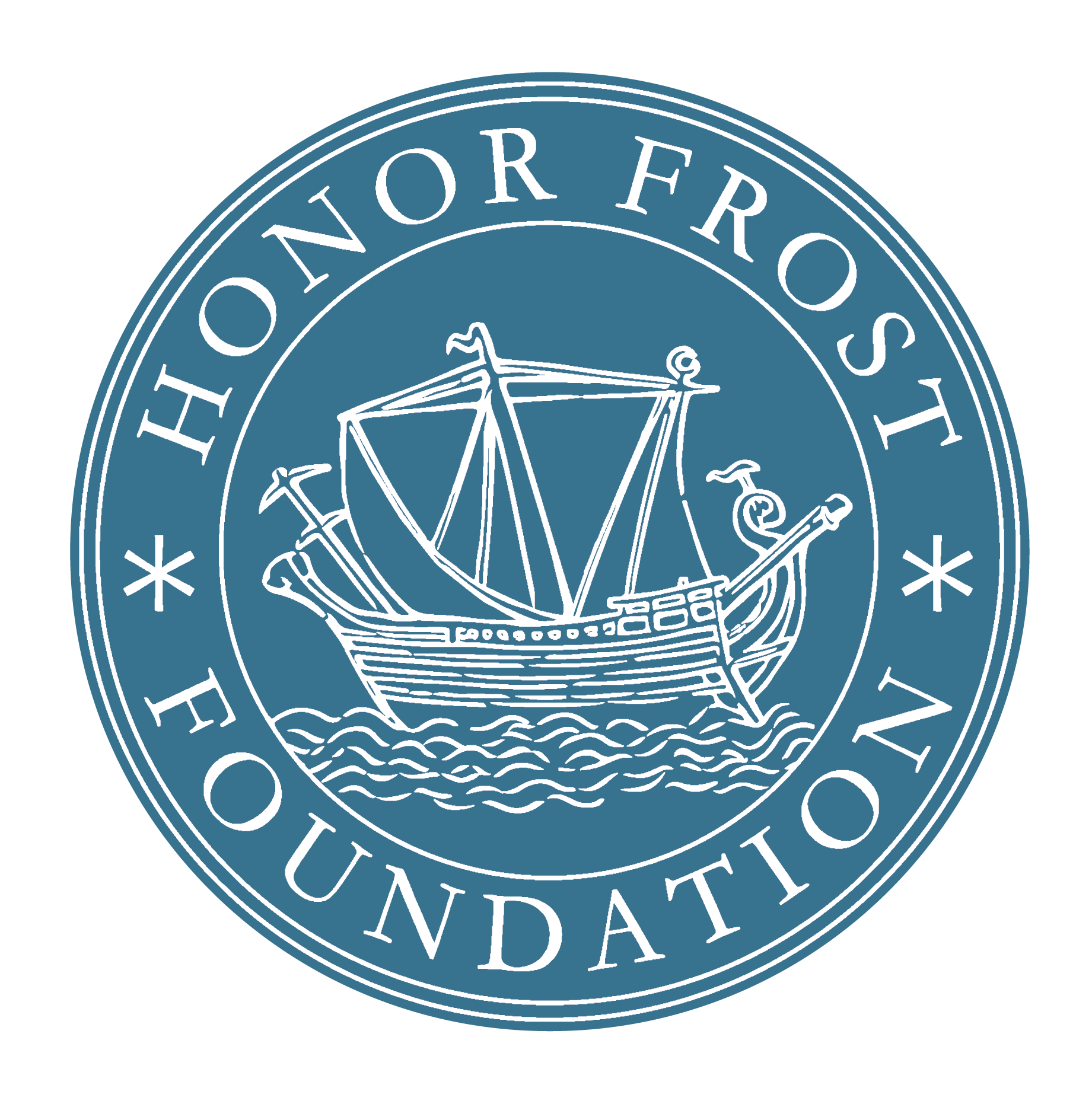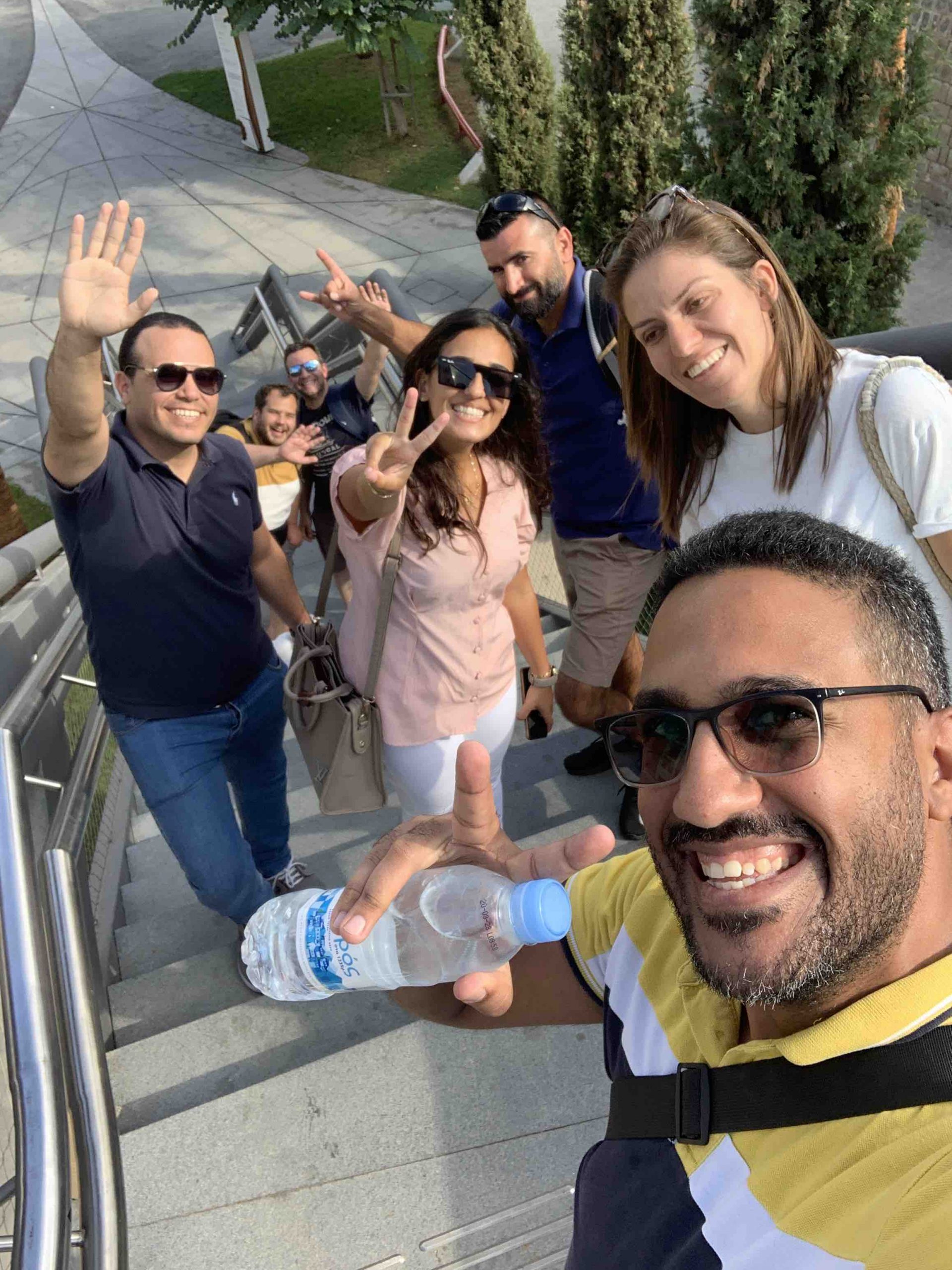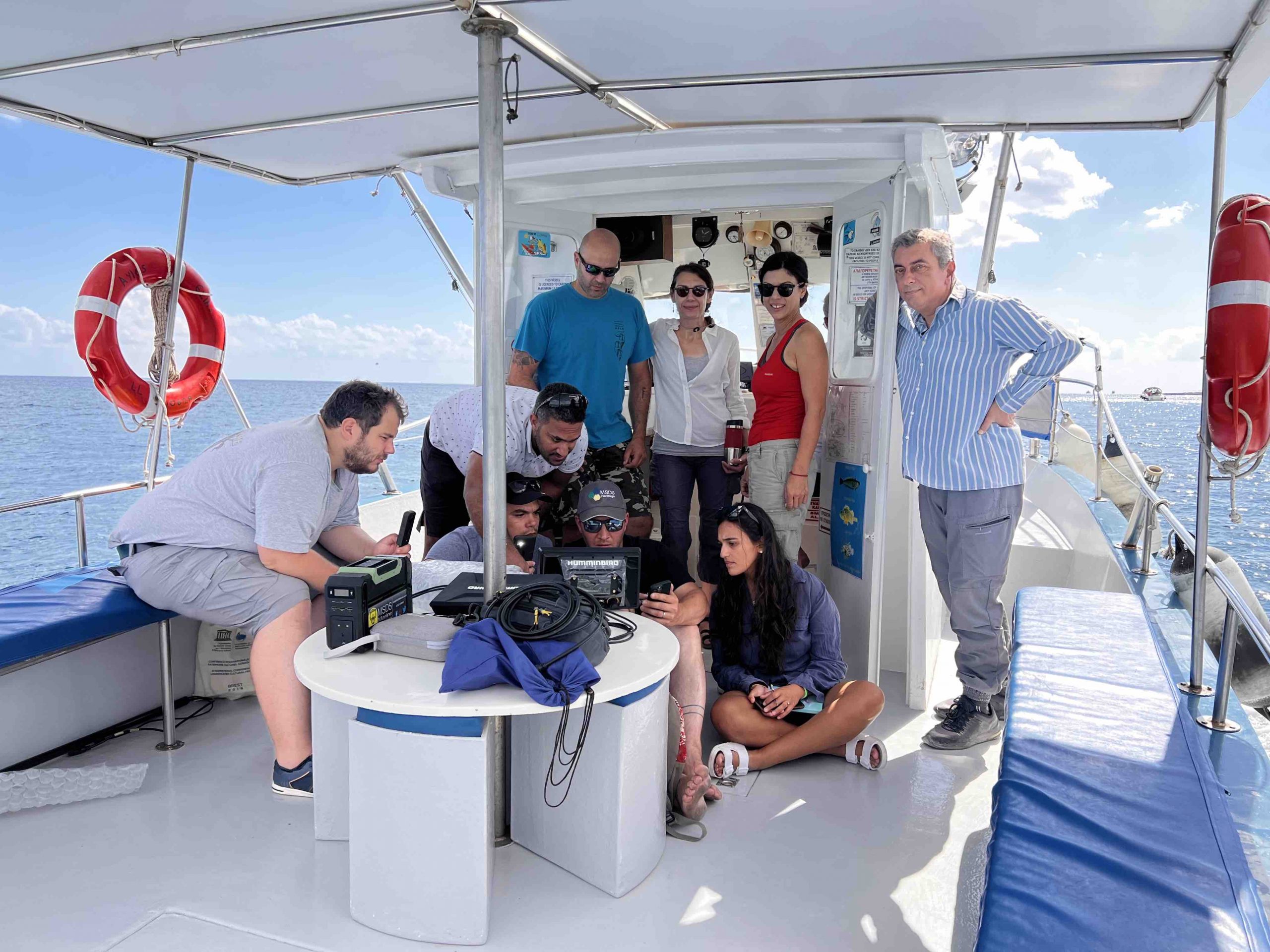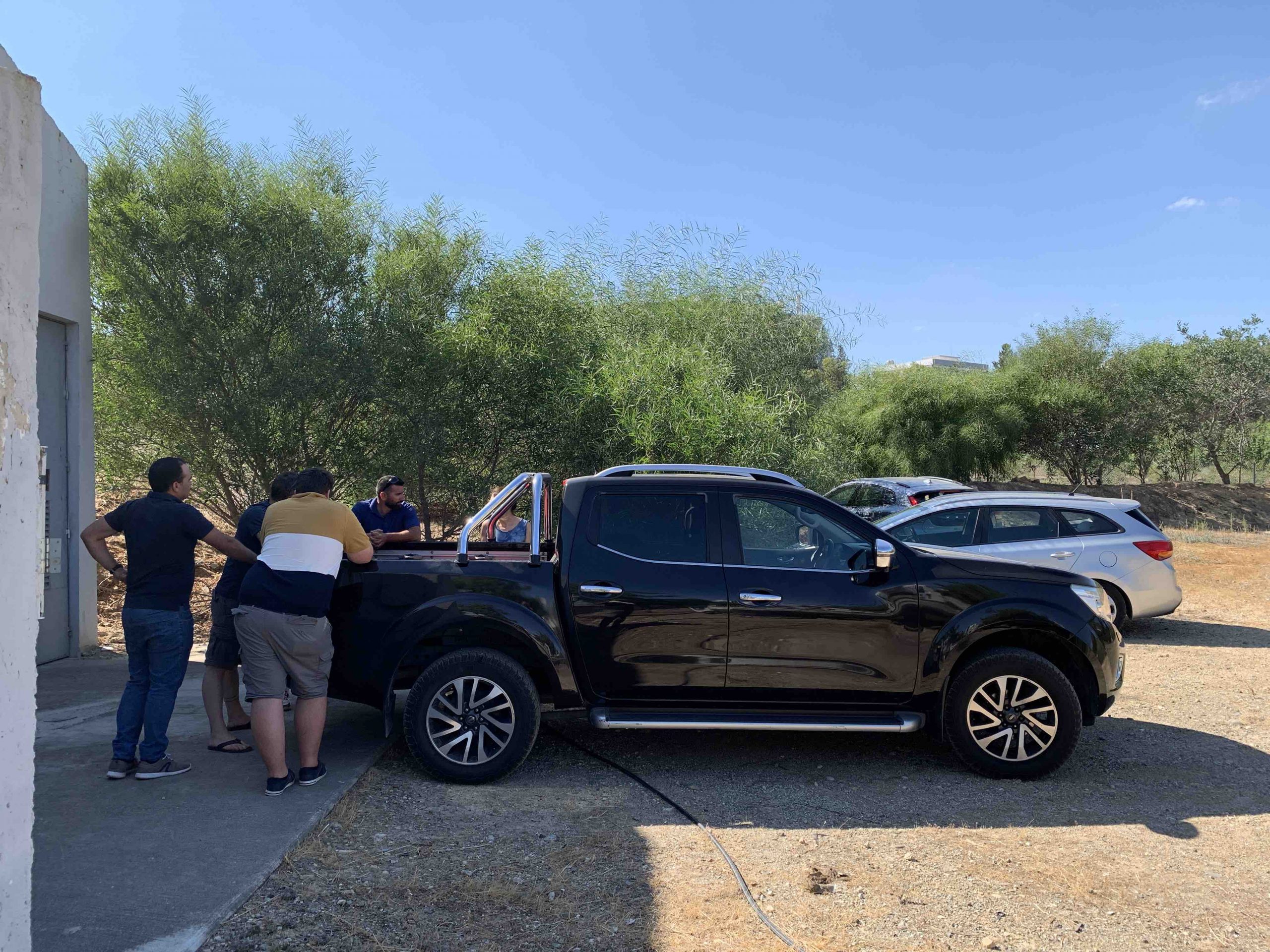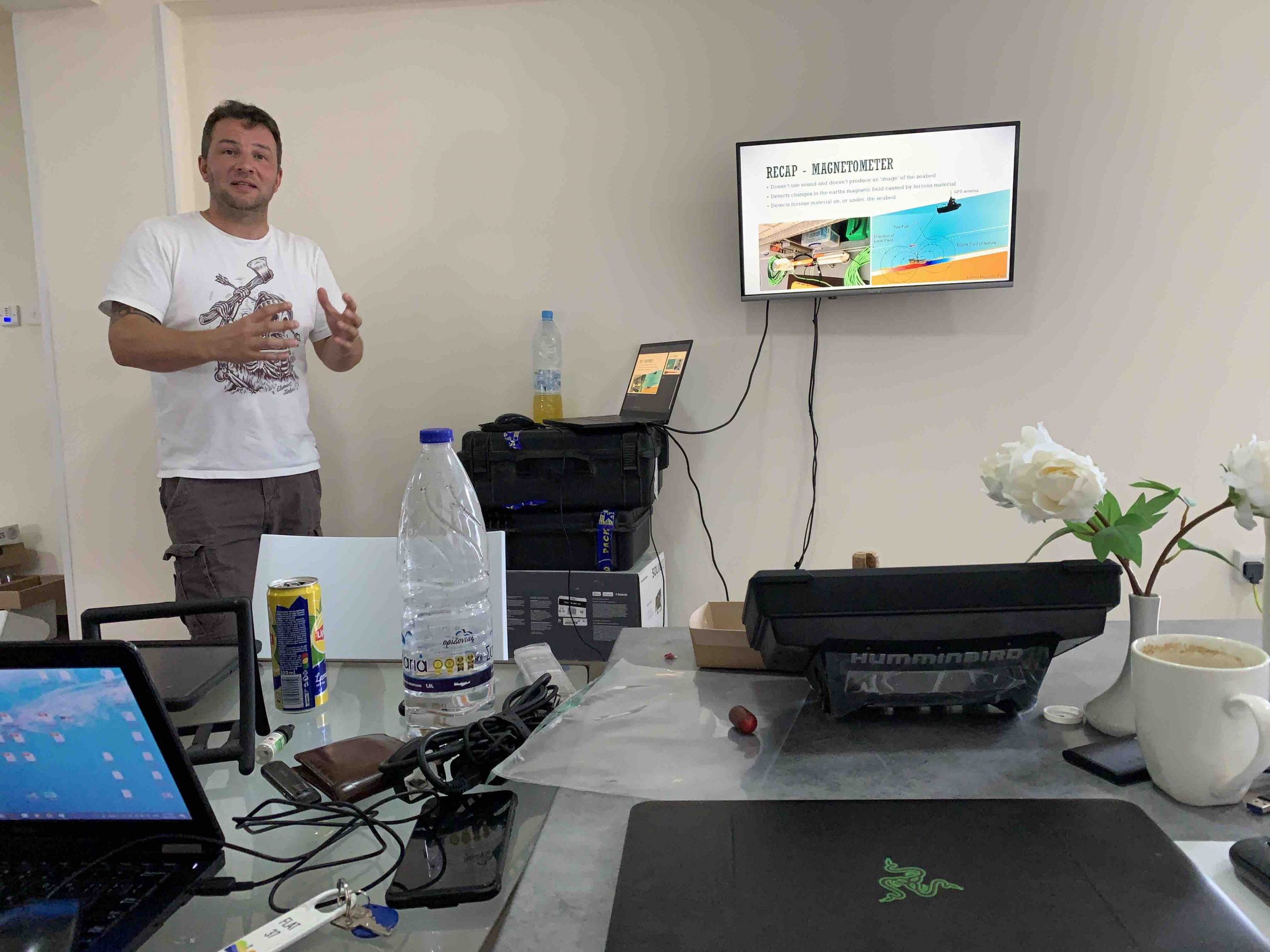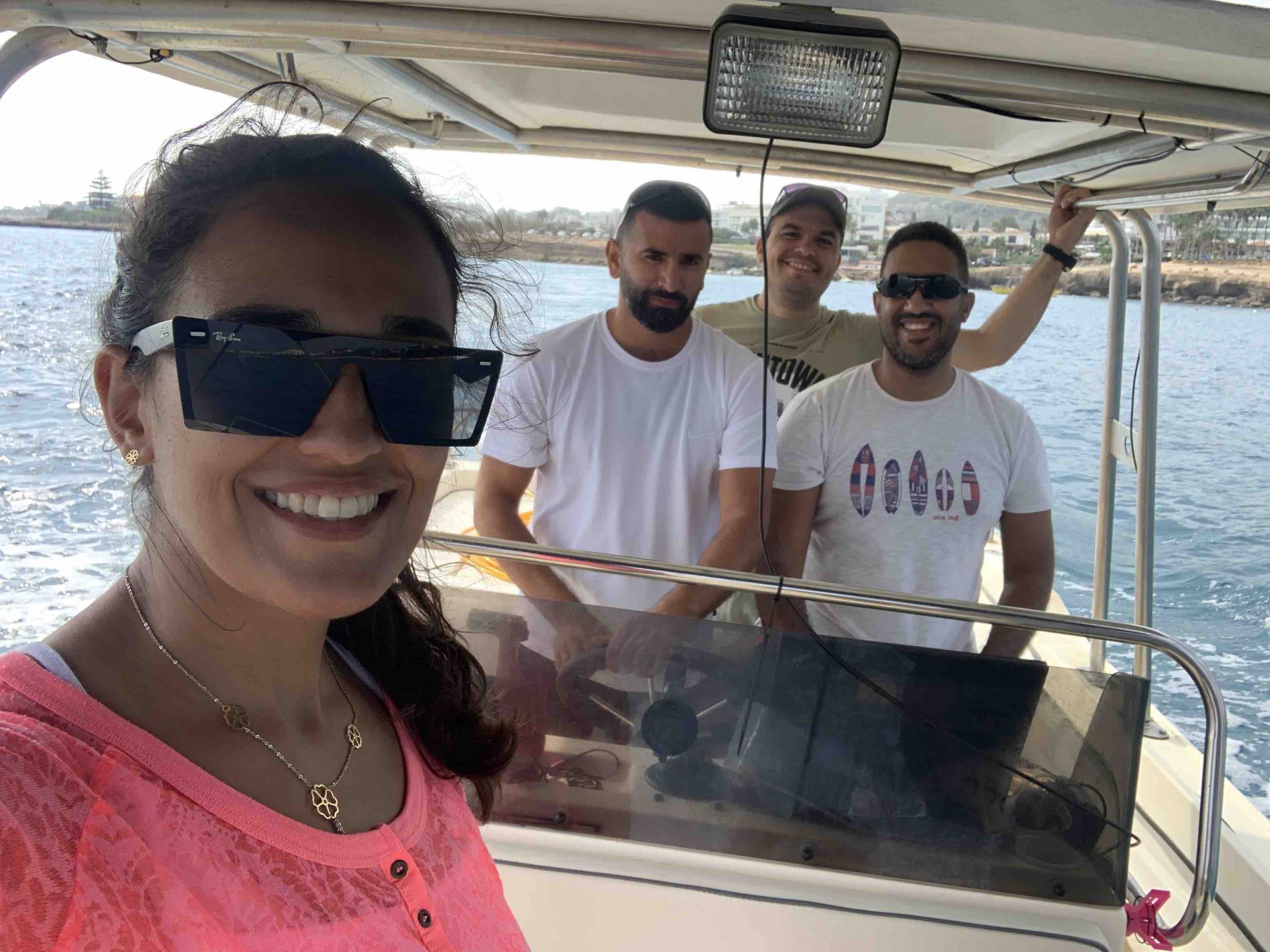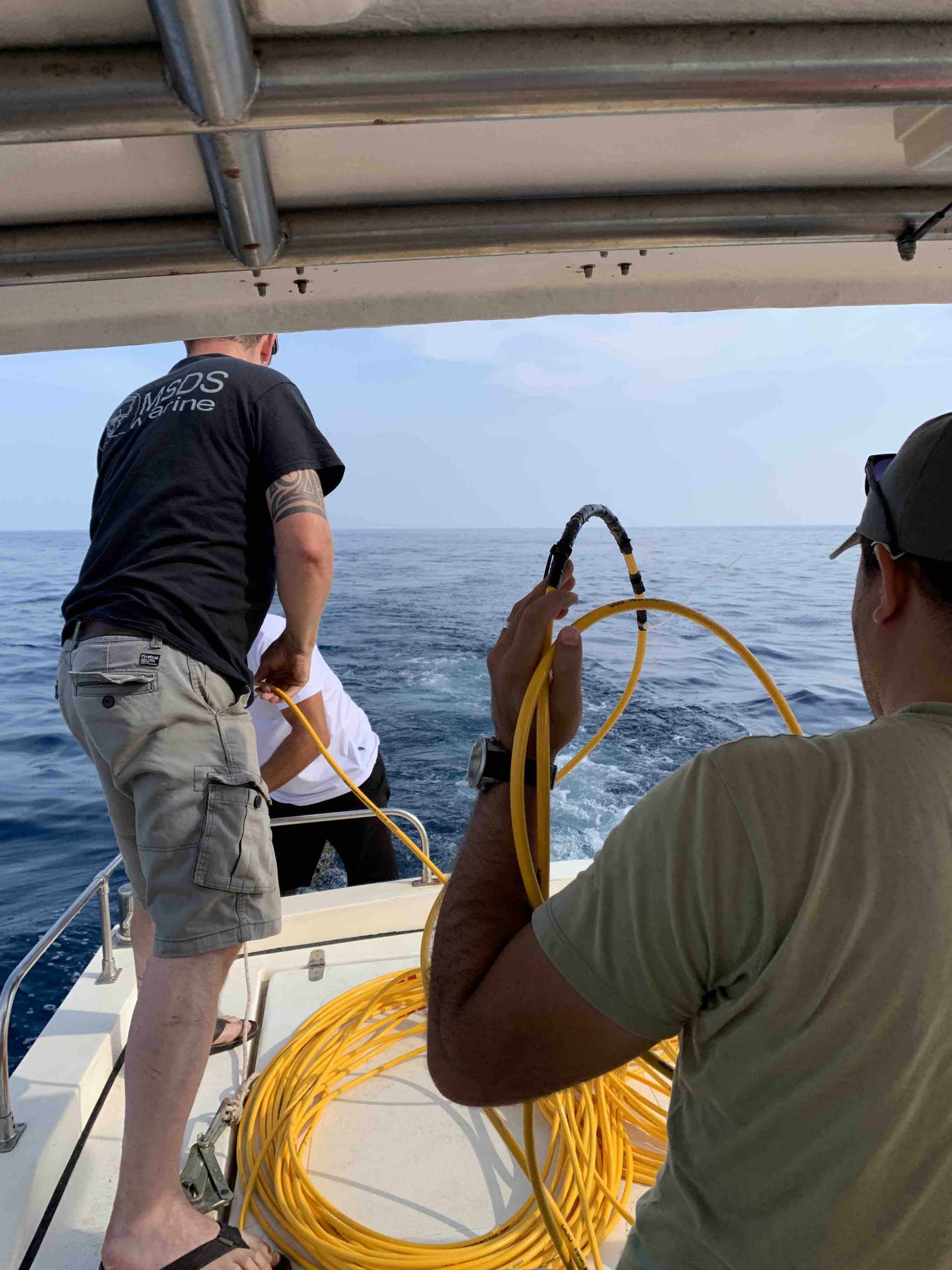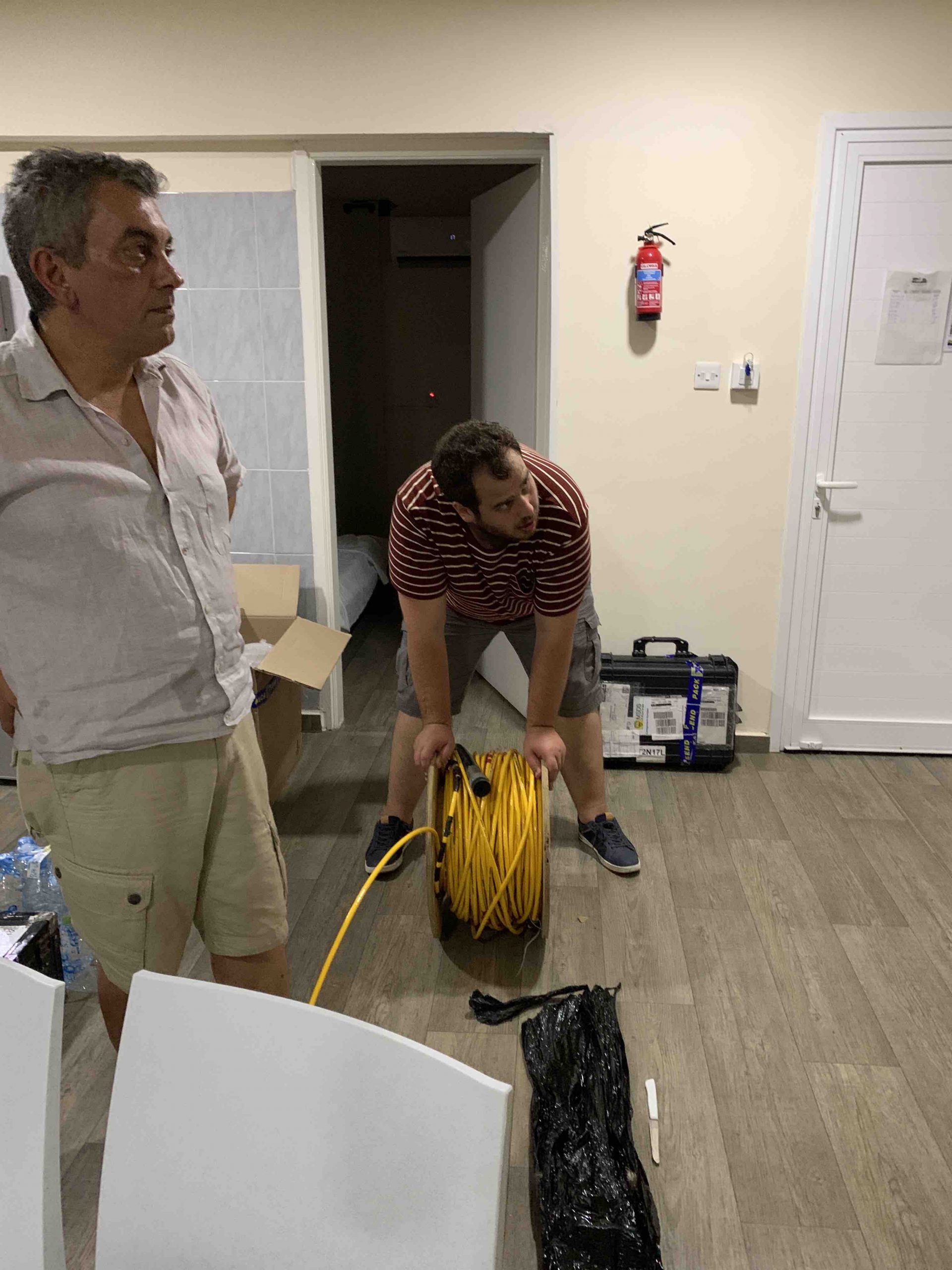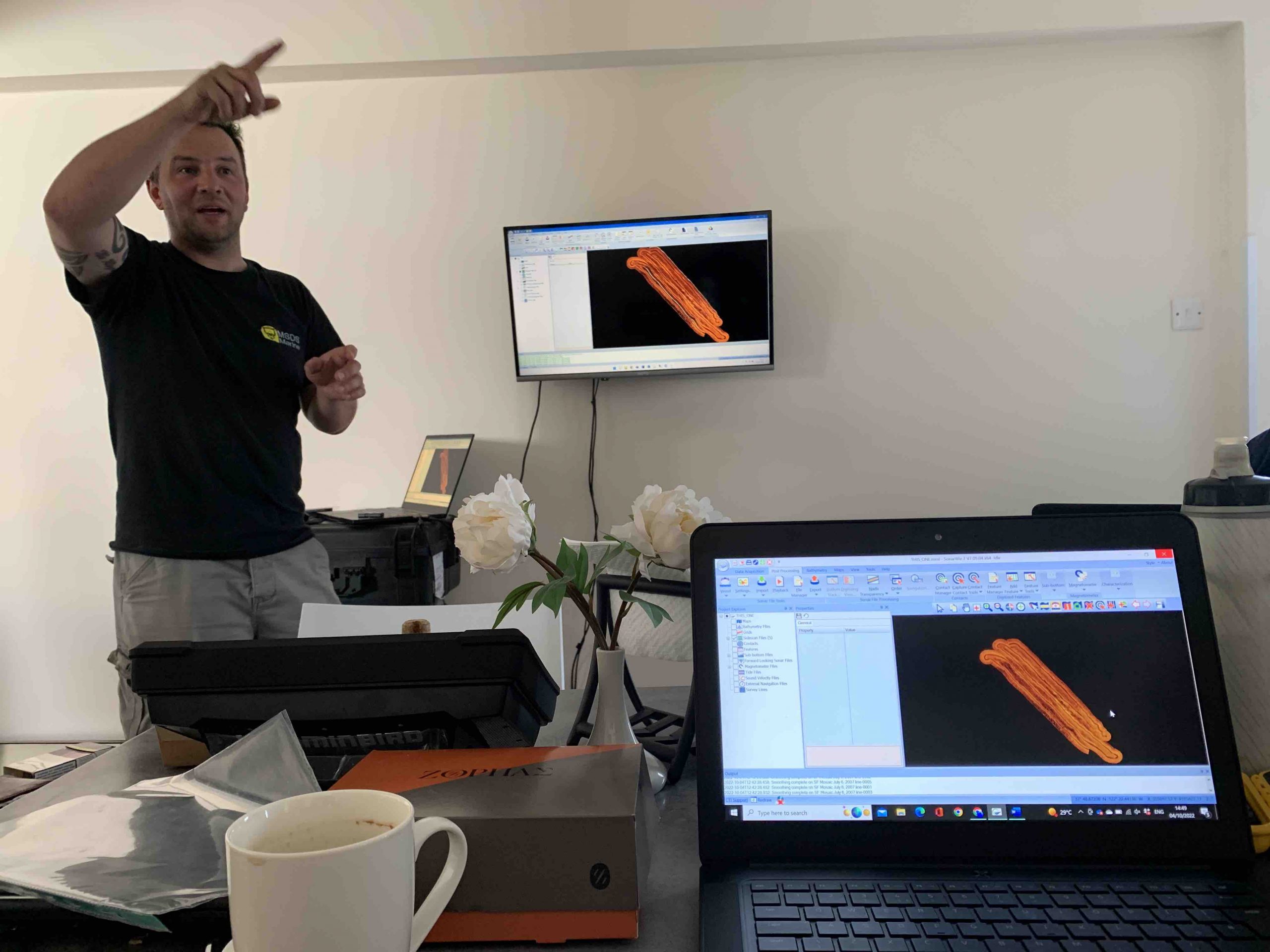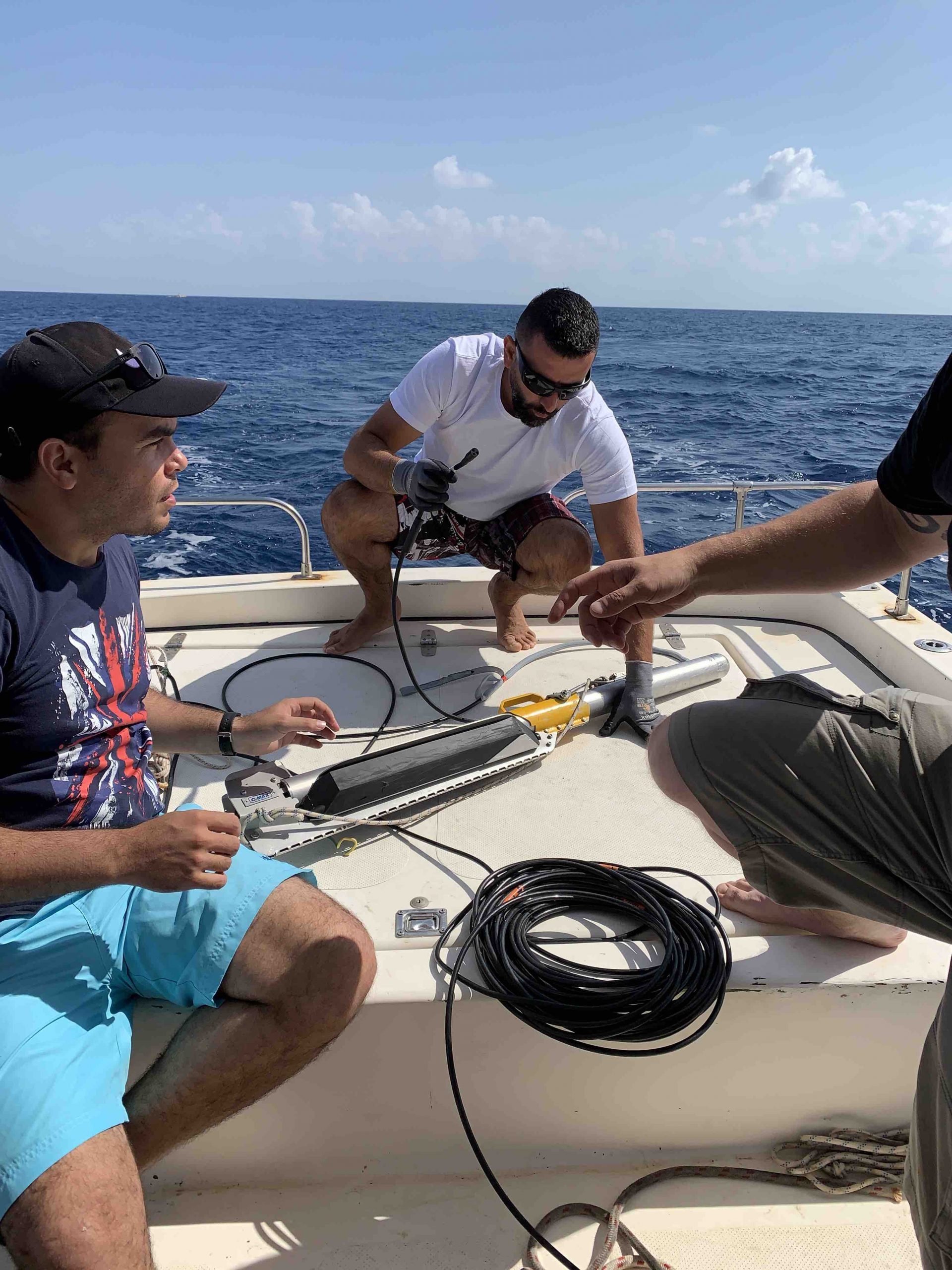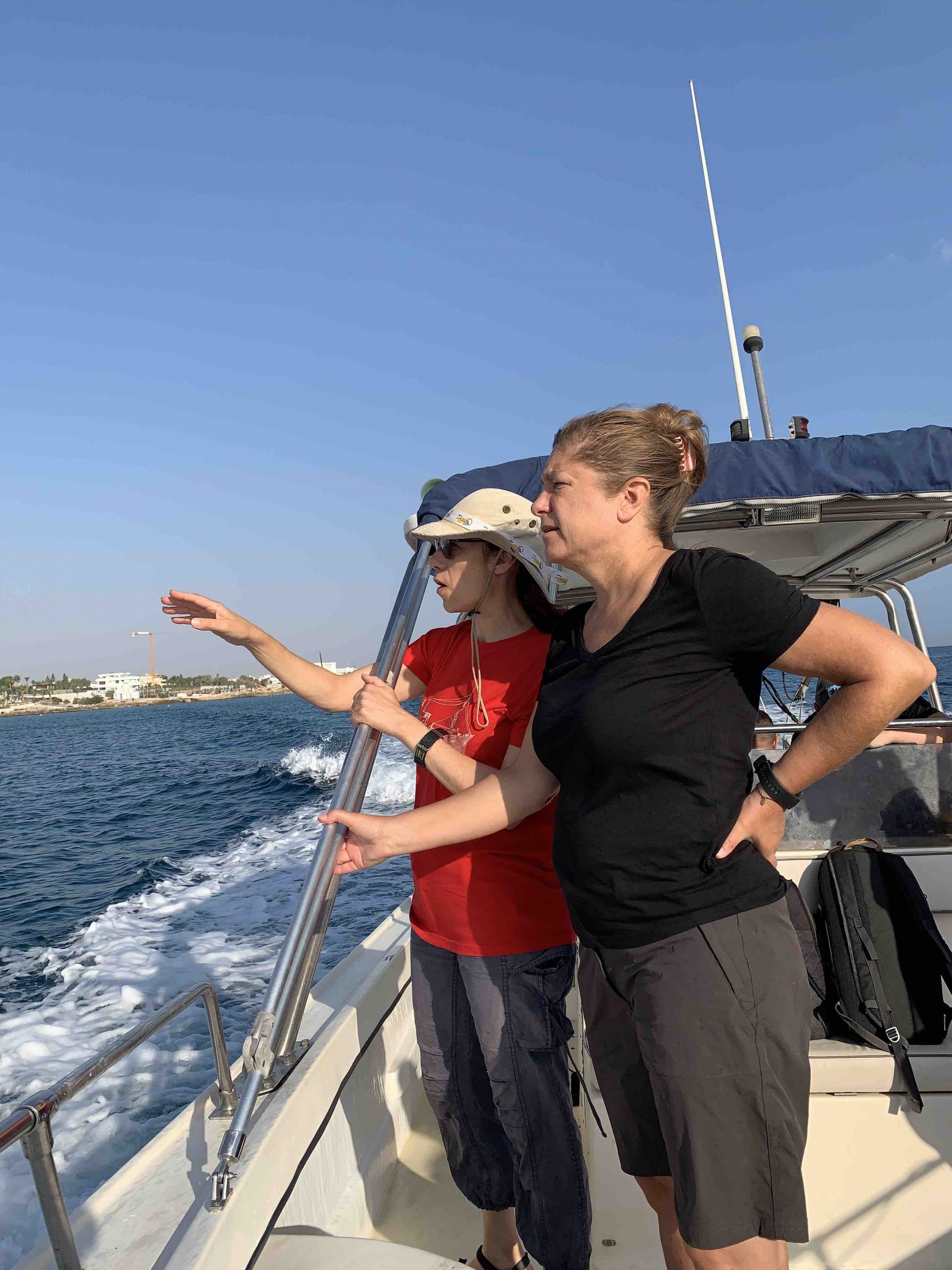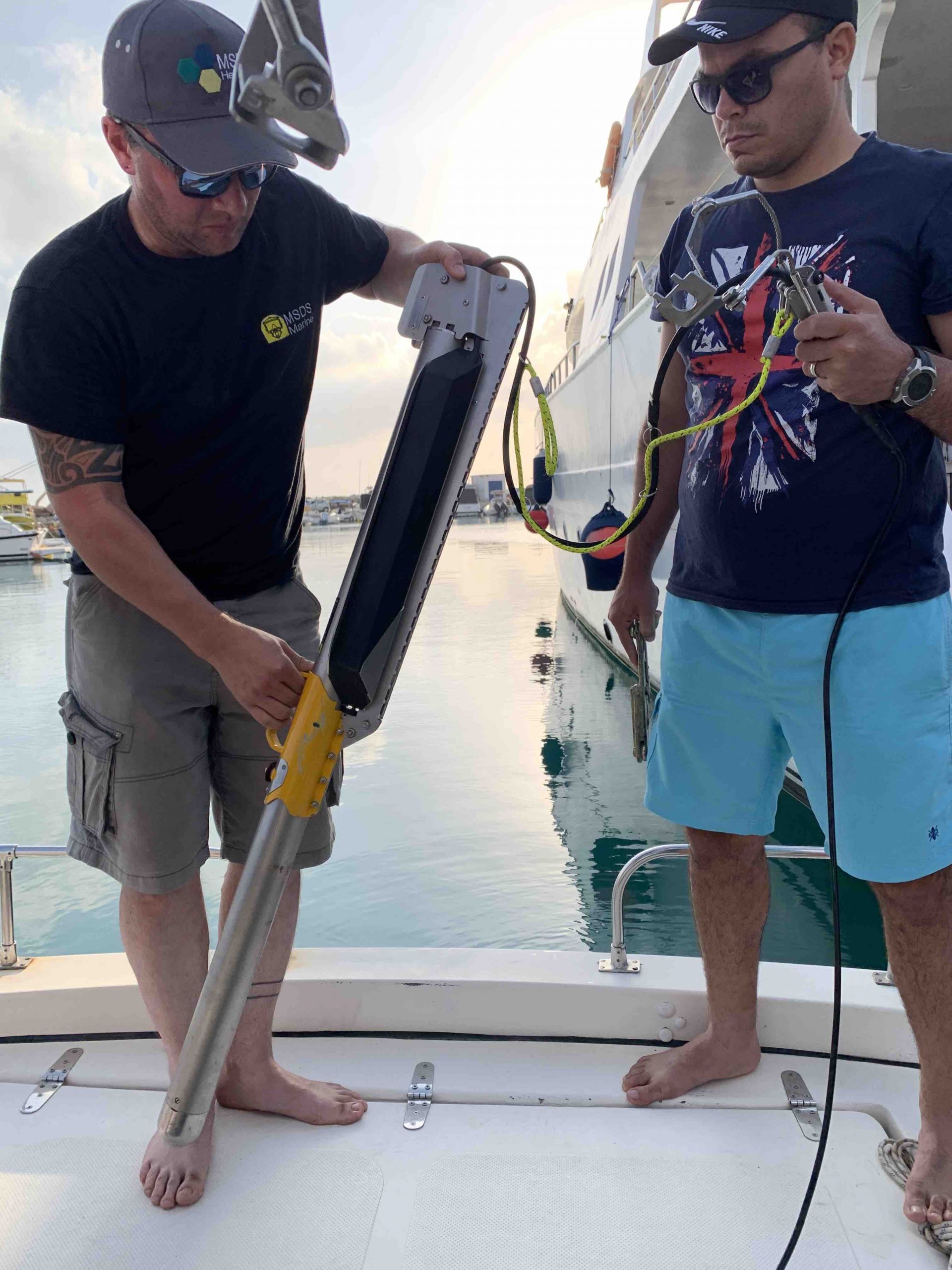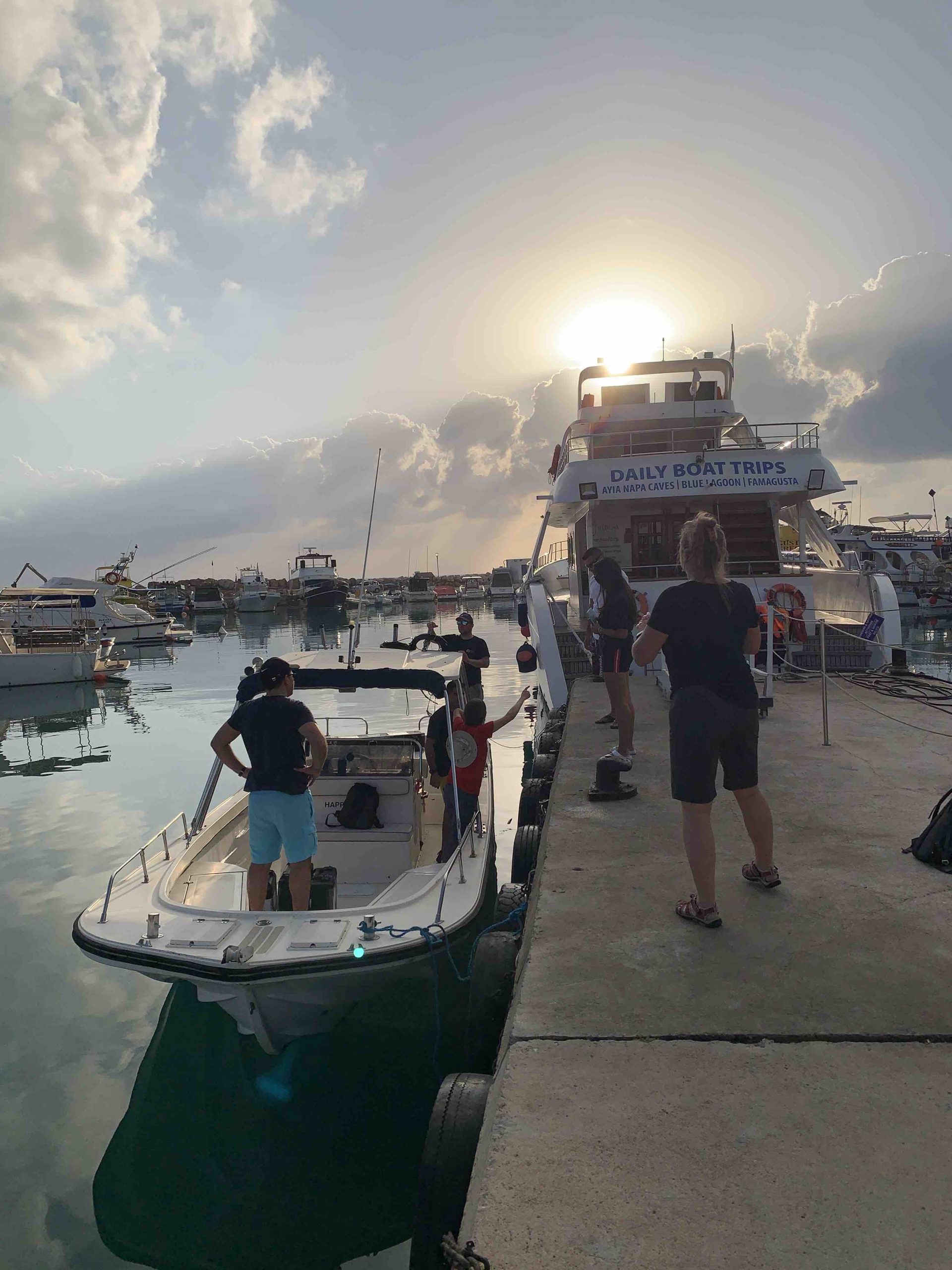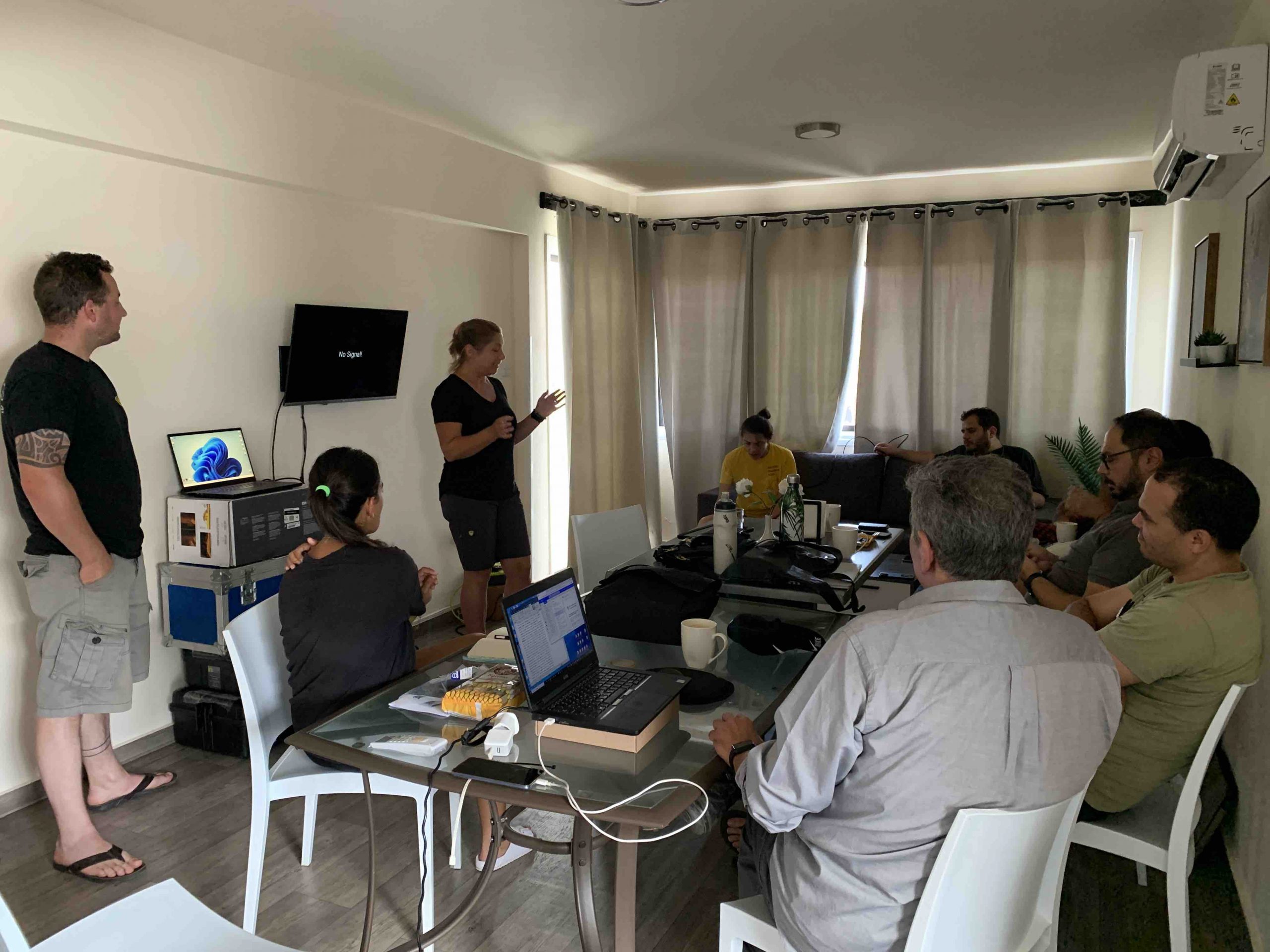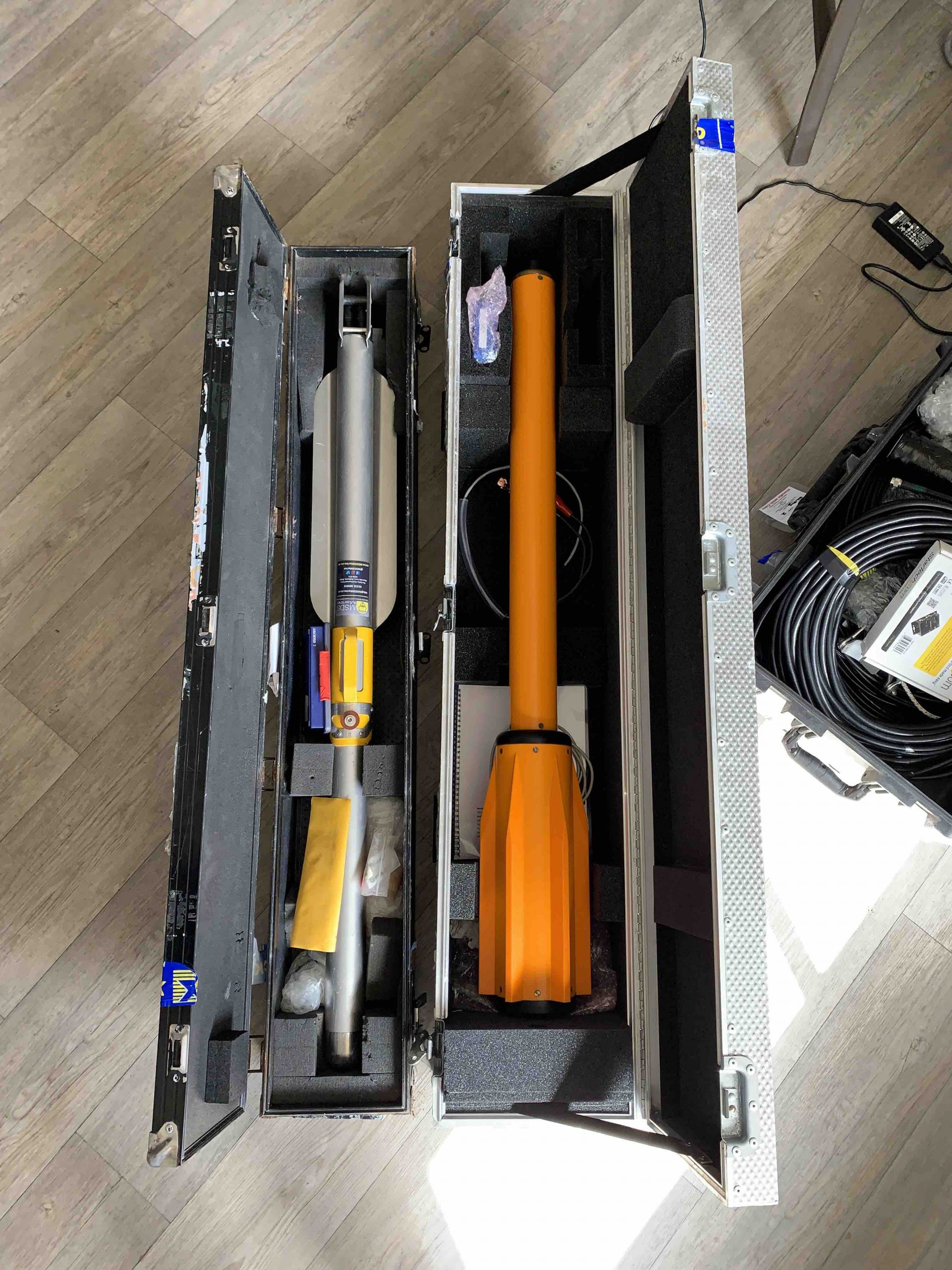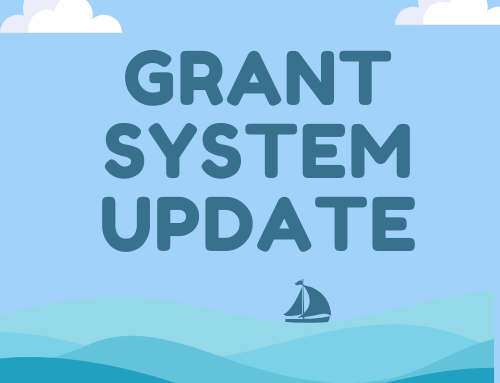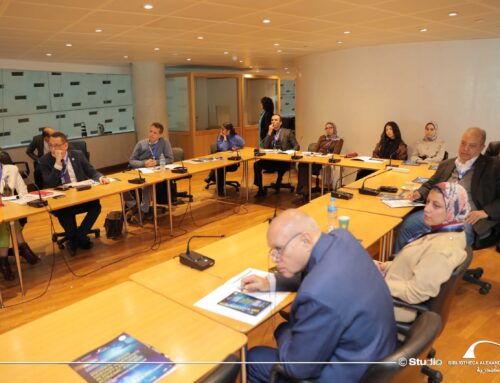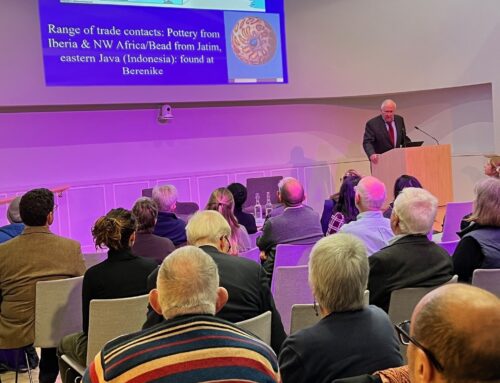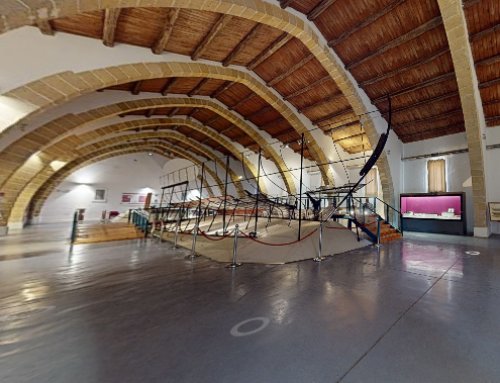Capacity Building – Marine Geophysical Survey in the eastern Mediterranean- CRDP
As part of a recent initiative led by the Foundation – the Cyprus Regional Development Project (more information on this will be coming soon!) – a marine geophysics workshop took place in October 2022. Marine Geophysics arer a vital tool for underwater archaeology, helping us to locate, map, record and monitor underwater heritage. Check out this latest blog post from HFF scholar Ziad Morsy, who took part;
Between the 2nd and 8th of October 2022, a team of Honor Frost Foundation-sponsored researchers participated in the ReSeA: Workshop on Remote Sensing Applications in Coastal Archaeology in Protaras, Cyprus. The workshop aimed at building the capacity of HFF scholars from Cyprus, Lebanon, and Egypt in Marine Geophysics.
The week-long workshop included extensive fieldwork of geophysical surveys using the latest technologies provided by MSDS Marine – UK and under the mentorship of Mark James, Operations & Technical Manager of MSDS. Sites were provided by Dr. Stella Demesticha, and varied between ancient, submerged landscapes and Medieval Shipwrecks.
The workshop included morning sessions in the field and afternoon sessions in the lab. Using Side Scan Sonar, Multi-beam, Magnetometer, and Sub-bottom profilers during the morning sessions and processing the data acquired during the afternoon sessions. The team of 6 researchers from the three countries deployed the equipment from a boat provided by the organizers.
A typical day of the workshop starts at 6 am, with the team loading the equipment onto the truck, then heading to the tourist marina of Protaras. Unloading the equipment off the truck and onto the survey vessel, the team then work on setting up the equipment and making sure it is ready for a day of surveying. Despite the change in the equipment used, the setup procedure was the same. Under the supervision of Mark James, the team would set up the RTK-GPS antenna on the bow of the vessel, attaching it to the data processing module. The module is powered by a portable power bank providing enough power to all the equipment in use. The survey equipment is then attached to the data analyser via cable, and all are connected to the survey laptop, where specific software is working on collecting and processing the data from the different equipment.
Once everything is in working order, the team then leave the port and navigates to the site of the survey, spending a few hours collecting data from the site. All participants have hands-on experience setting up the equipment, recording and even driving the research vessel to accurately execute the pre-planned survey lines. After covering the survey area, the team returns to the port, disembarks the vessel, and moves back to the accommodation.
After a quick break and small lunch, the team meets in the “classroom” to download and process the data. The main software used to process the geophysical data was ScanWiz, provided by MSDS to the participants. After long hours processing the data and a few hundred of questions answered by James, the team took a dinner break. After dinner, we prepare for the next survey day and troubleshoot the equipment is done by James and Felix.
After the final day of the workshop, the team packed the survey equipment and drove to Nicosia, where the equipment was stored during the weekend until it was shipped back to the UK. The team then spent the day in Nicosia, exploring the old city and drinking lots of coffee.
Special thanks to Dr Lucy Blue – Maritime Archaeological Director of HFF, Dr Stella Demesticha – Director of MARELab at the University of Cyprus, Dr Anna Dimitriou – CMMI – Cyprus Marine & Maritime Institute, for organizing the workshop. Mark James – Operations & Technical Manager of MSDS Marine UK, for his limitless efforts and never-ending support in teaching the workshop. Felix Pedrotti for his technical support of the team members during the week. My dear friend Constantinos Nicolaou for his logistic support of the team during the fieldwork. Last but not least, thanks to the Honor Frost Foundation trustees for always supporting the research, education, and capacity-building of maritime archaeologists in the eastern Mediterranean region.
